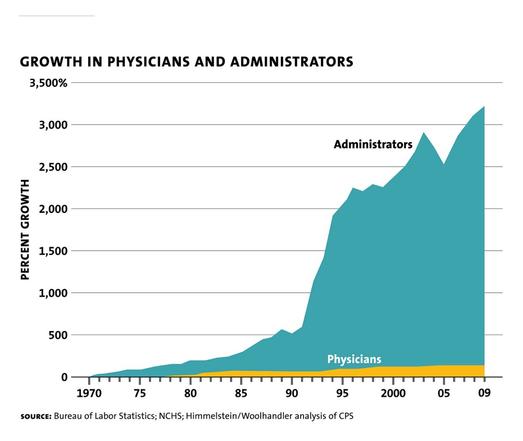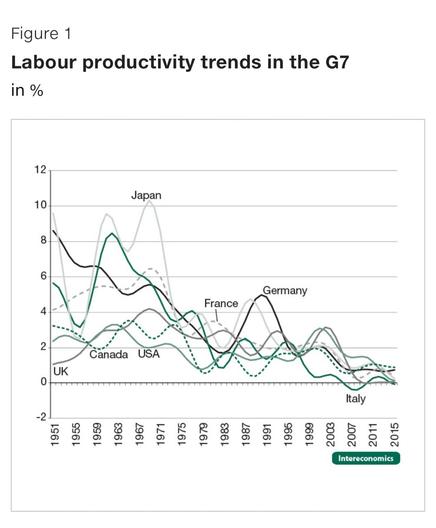All probationary federal employees at NOAA’s EMC that’s responsible for keeping all US weather model systems running have been fired with 1 hours notice. And that includes me and colleagues. We will not go quietly because we care about the NOAA mission to protect the public.
Here to learn, laugh, chat ‘n’ chill. #Web3, #tea 🍵 and #coffee ☕️ drinker, #CivilRights advocate, #disabled👨🦯 by #fibromyalgia. 🦥
Former #healthcare 🏥 worker.
Current #AWS Certified #CloudPractitioner & student #SolutionsArchitect. 👨💻
#COVIDisNotOver
https://youtu.be/nf7XHR3EVHo?si=D-4nI-ISWKLJXvdh&t=1500
John Oliver talking about Mastodon!
No purchases from me, starting in the next 20 minutes, lasting for the next 24 hours.
I know it's just a blip. Doing the economic blackout is just a blip.
But it is a *flex*, and it's an important one.
Please join me in refusing to buy anything on Friday.
What do we call these people, who so sneeringly wipe out programs that save lives around the world? The Trump regime and Musk's slimy operatives may never face justice, but they will be remembered for their depraved contempt for human life.
People assume they’ll be the exception. That disability, poverty, homelessness won’t befall them
That if something “bad” happens, they will be able to “try harder” their way out of it.
This false belief allows them to blame the ones who are suffering, instead of the oppressive systems that trap us
Fascist harm is spread across all of us. As one person drops out, the water level rises and more of us go under. The only way to save any of us is to save all of us. There is no sacrificing a small minority for the good of the whole.
You must take the needs of every oppressed group seriously.
The 128GB Framework Desktop config is by far our top-selling product from our recent launch.
We're now onto Batch 6 of Framework Desktop!
If you’ve enjoyed my writing, please consider buying me a coffee at the link below.
It’s my dream to be able to devote myself to writing on topics like this full-time.
https://buymeacoffee.com/heavenlypossum
14/end
I don’t think it’s particularly useful to think of collapse in terms of “good” or “bad,” even if that seems impossible as we live through it. The decline of the US state’s coercive capability seems like a good thing. Our elite’s loss of their administrative capacity to monitor and control us seems like a good thing. Collapses have historically been associated with increases in well-being for lower classes who might be (even briefly) liberated from elite taxation and other depredations.
But, at the same time, immense harms can and will befall many, many innocent people—the earliest victims here are US children dying from preventable measles infections and people overseas suddenly cut off from USAID donations.
In every case, it’s almost entirely out of our hands at this point. We’re really just along for the ride at this moment, swept up by titanic historical forces that are barely even perceptible, much less controllable.
13/
Tainter is clear: collapse is an economizing process, one which can benefit the population involved. Collapse isn’t a failure to adapt to a crisis, but rather a real and logical adaptation when subtracting complexity makes economic sense:
“Collapse then is not a fall to some primordial chaos, but a return to the normal human condition of lower complexity. The notion that collapse is uniformly a catastrophe is contradicted, moreover, by the present theory. To the extent that collapse is due to declining marginal returns on investment in complexity, it is an economizing process. It occurs when it becomes necessary to restore the marginal return on organizational investment to a more favorable level. To a population that is receiving little return on the cost of supporting complexity, the loss of that complexity brings economic, and perhaps administrative, gains. Again, one is reminded of the support sometimes given by the later Roman population to the invading barbarians, and of the success of the latter at deflecting further invasions of western Europe. The attitudes of the late Maya and Chacoan populations toward their administrators cannot be known, but can easily be imagined.”
12/
Tainter uses a great example from the UK in his book—the decline of the British Royal Navy. During the 20th century, the Royal Navy shrank in every important way: fewer capital ships crewed by fewer sailors and led by fewer officers, supported by fewer dock workers and guarding a shrinking empire. But! The number of clerks and office officials grew exponentially during this same period. More and more investment in complexity, requiring ever more people in management, surveillance, communication, and control, producing less and less of value.
Consider the US “health care” sector, in which the number of administrators dwarfs the number of physicians. Complexity requires resources. Elites extract ever more resources to sustain that complexity, and to invest in yet more complexity—more paperwork, more monitoring and surveillance, more control, and yet more extraction. And when people like Luigi Mangione have had enough, they invest in yet more security to defend themselves from the people they’ve been squeezing, until it all comes tumbling down.
11/
Consider that productivity has been declining in the US (and, indeed, in all of the capitalist “West”) for decades. This is true across sectors—from construction to health care, US society invests more and more resources for fewer marginal returns. Less housing, worse health. Collapse.
Another term we might use for this process is “neoliberalism,” the prevailing ideological system in the US and the rest since the 1970s. Prioritizing surveillance, control, and extraction above all else, neoliberalism is both a response to and driver of collapse. The fewer returns that we get from our investments, the harder our elites want to squeeze us for ever more elusive gains. But this squeezing is costly, which paradoxically requires the extraction of yet more resources from primary producers, and provokes discontent, which also requires more extraction to finance all that monitoring and coercive power.
10/
Why do collapses happen? Tainter argues persuasively that societies collapse when marginal returns on complexity begin to decline.
Complexity is a problem-solving tool. We can reap tremendous benefits from complexity. But complexity is also quite expensive. If you’re working as, say, a scientist, someone else is laboring to sustain your life—the food you eat, the clothes you wear, etc—while you engage in research. The more specialized we become, the more those primarily producers must produce to keep everyone else fed and clothed, the more resources we must pour into coordinating and communicating and transporting.
And sometimes, we find that additional complexity begins to generate declining marginal returns—fewer returns per unit of resources invested in complexity. We begin to invest more and more just to sustain things as they are, and when we reach that point and face some new crisis, we have no surplus left to invest in more complexity.
9/
In many ways and for many people, this will be catastrophically bad. The sudden and abrupt loss of social complexity will mean things like: disruptions to supply chains for life-saving medicines. The spread of previously-controlled diseases like measles and tuberculosis. The suspension of food aid to starving children abroad. The closure of schools and hospitals; the shuttering of scientific institutions. At least some people will die; collapses are often associated with population drop-offs.
But people are resilient and collapse is not always catastrophically bad. For years, people believed the collapse of Classical Mayan city-states involved mass die-offs, but recent archeology (like the paper linked below) reveals that while people abandoned urban centers of royal power, people in the countryside continued their lives without so much interruption.
8/
https://www.sciencedirect.com/science/article/pii/S0278416524000412?via%3Dihub
But they’re doing it anyway, almost as if swept up in historical currents beyond their control or perception.
Which is not to say that I believe they’re being guided by some “Spirit of History,” but if it wasn’t them, it would have been someone else. Probably not in the same way, probably much more slowly, but with a similar end result—a massive loss in social complexity. The US is collapsing, in real time, on livestream.
Musk has fired hundreds of thousands of federal employees and has plans to fire another million or so, in pursuit of ideological obedience and “cost savings” and petty revenge. In doing so, he’s stripping the US of its ability to keep doing all those things that have made it so effective at control, both domestically and abroad. Like it or not, the US is about to get much *simpler* in Tainter’s terms, unable to mobilize people and resources to effect its goals.
7/
Because collapse is often incredibly slow! The Roman Empire declined for centuries. The US, I believe, has been collapsing since the 1970s. These things can take a while, often imperceptibly slowly. And yet here we are, staring down the barrel of a cessation of the US government’s administrative capacity.
I don’t think Musk and Trump are thinking in these terms. One is a drug-addled Nazi and the other is an increasingly demented crime boss. Their decisions are driven primarily by their unrestrained impulses to aggrandize themselves and hurt others. There is no real coherent plan beyond “steal as much as you can for yourself” and “punish as many other people as you can.” By gutting the US government, they are in many ways making these goals harder to reach.
6/
All of which is why I believe it’s fair to say that the United States is undergoing a collapse right now, in this clinical sense: an unintended loss of social complexity.
The rapid dismantling of government functions upon which society has come to rely, from public health to aviation security. The dismantling of the state’s fiscal and revenue collection apparatuses. The accelerating departure from NATO and the FVEY intelligence sharing community. The projected withdrawal of military forces from abroad. The suspension of reporting of scientific and medical information. Tariffs and other barriers to trade.
In just a handful of weeks, the Elon Musk/Donald Trump junta has been executing a process that I expected to play out over decades, if not longer.
5/
@HeavenlyPossum Can we call it more accurately as “fracturing” rather than collapse? 🤔
“Collapse” seems to evoke a more sudden event, no?
Not all of these are bad, or at least not *all* bad. As an anarchist, I desire less centralized control and regimentation, for example. Less information can be bad, but few of us would miss AI slop. Less specialization can be bad, until you remember that “prompt engineer” and “bitcoin miner” exist as professional categories. And so forth.
My point is: collapse is something that happens along multiple axes, often in subtle and gradual ways that look very unlike the depictions of collapse we commonly encounter in movies. And it’s primarily a function of elites and their institutions.
4/



